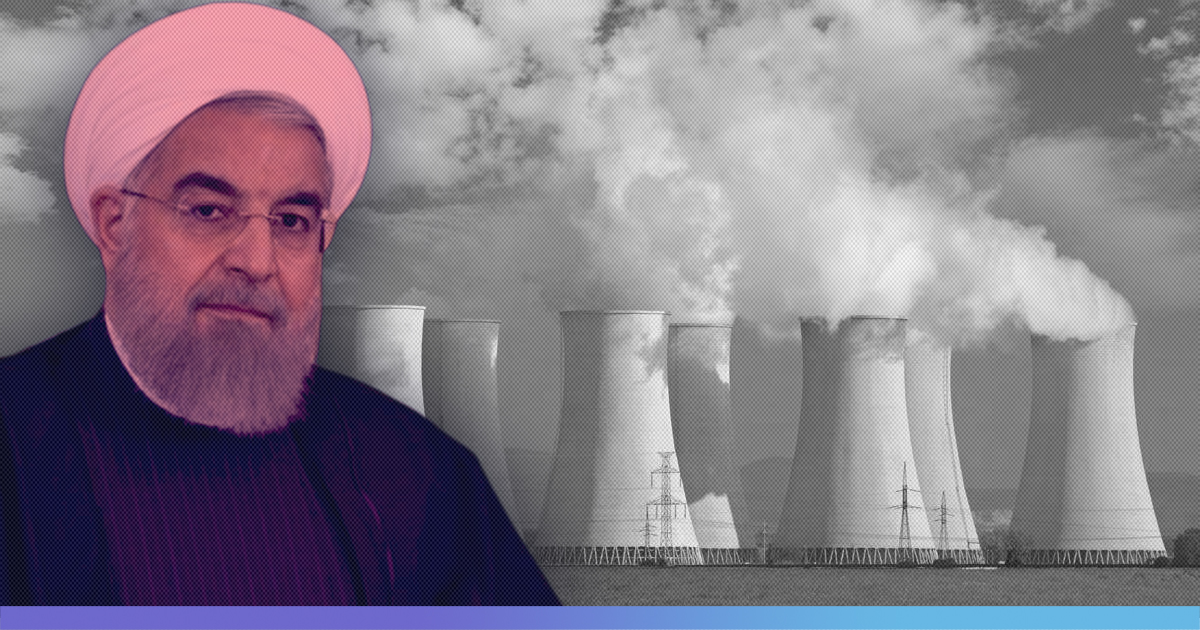On Sunday, June 16, Iran announced that it would breach the limit of 300 kgs on its enriched Uranium stockpile by June 27. Iranian atomic agency’s spokesperson, Behrouz Kamalvandi, made the announcement in a press conference.
In 2015, Iran had agreed to the threshold on Uranium production in an international deal with the US, UK, France, Germany, China, and Russia.
The Deal
When Iran began working on its nuclear energy programme, it came under the radar of the United Nations (UN) and the European Union (EU).
The global alliances suspected that the programme was a cover for developing nuclear bombs. Prompted by it, they imposed sanctions on Iran’s oil trade, which is its primary source of revenue. The aim was to persuade Iran to curb its nuclear activities.
In 2015, Iran brokered a deal with the six countries which imposed limits and changes to Iran’s energy programme. In return, the alliances removed the sanctions on Iran’s oil trade.
The Controversy
In 2018, the US withdrew from the deal under the Trump administration. In his statement, Trump said, “It is clear to me that we cannot prevent an Iranian nuclear bomb under the decaying and rotten structure of the current agreement,”
“The Iran deal is defective at its core. If we do nothing we know exactly what will happen,”
“This was a horrible one-sided deal that should have never, ever been made, It didn’t bring calm, it didn’t bring peace, and it never will.”

Wikimedia Commons
Consequently, the US reimposed the sanctions on Iran’s oil trade. This forced the other members of the deal to reimpose their sanctions. Reportedly, within a few months, this triggered an economic disaster for Iran and inflation started soaring.
Iran appealed to the other countries involved in the deal besides the US to mitigate the impacts that the US’s withdrawal had on its economy. Reportedly, in early May, Iran gave the countries 60 days to act on their commitments and announced its intention to backtrack on the deal after that.
Now that there has not been any action from the remaining five members of the deal, Iran has refused to recognise the nuclear deal anymore and scaled up its enriched Uranium production.
Iran’s Message
During the press conference, Kamalvandi reiterated that Iran would reverse the measures if the European members of the deal (the UK, France, and Germany) step-in to circumvent the US sanctions.
Highlighting Iran’s impatience, he said, “I think till now the Europeans have not done their part and they’ve wasted a lot of time,”
“They have given us a lot of good words but no deeds.”
Significance Of The Announcement
In an analysis of the situation, BBC’s defence correspondent, Jonathan Marcus said, “since its first announcement, the context has changed dramatically with two sets of attacks on oil tankers in the Gulf – both attributed by the US to Iran.”
“Many fear that Washington and Tehran are on the verge of a military clash and that miscalculation could tip them over the edge.”
“Iran’s further threat today to increase its level of enrichment to a stage that would bring it much closer to “weapons-grade” material adds another element of risk into an already combustible mix.”
Also Read: United Nation Votes On Historic Treaty To Ban Nuclear Weapons












